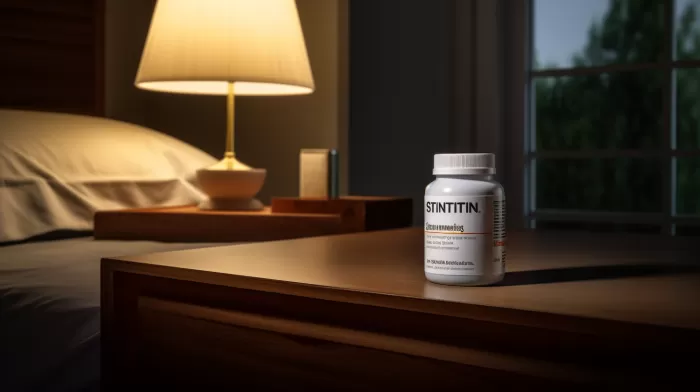If you’re one of the millions of people taking statin drugs to lower your cholesterol, you’re probably aware of the numerous potential side effects that come with the territory. But you might be surprised to find out about one sneaky side effect that could be stealing something incredibly valuable from you – your sleep.
Sleep disturbances caused by simvastatin (Zocor)
A study on the popular statin simvastatin, also known as Zocor, reveals that this drug can bring about sleep disturbances that many physicians might not be fully knowledgeable about.
The issue begins with the fact that simvastatin is fat-soluble. This characteristic allows it to dissolve in fat and easily pass through cell membranes, which mainly consist of fatty acids. Additionally, this enables it to cross through the blood-brain barrier. And once statins make their way into the brain, it can penetrate the fatty substance called myelin, which serves as an insulating material for nerve cells.
The outcome is that you may find yourself waking up multiple times during the night because of the brain effects caused by simvastatin. This then compromises the essential restorative powers of sleep.
The significance of sleep quality
According to researcher Beatrice Golomb of the University of California at San Diego School of Medicine, “The findings are significant because sleep problems can affect quality of life and may have adverse health consequences, such as promoting weight gain and insulin resistance.”
While no statin drugs come without risks (they’ve been linked to muscle issues and memory difficulties), those that aren’t fat-soluble (like pravastatin) could be less problematic.
Golomb explains, “The results showed that simvastatin use was associated with significantly worse sleep quality. A significantly greater number of individuals taking simvastatin reported sleep problems than those taking either pravastatin or the placebo. On average, the lipophilic (fat-soluble) statin had a greater adverse effect on sleep quality.”
Speak to your healthcare practitioner
If you experience any side effects while taking a statin (or any other medication), discuss with your healthcare practitioner the possibility of tapering off the drug. The last thing you need is to suffer side effects that further damage your health.
Approach your doctor with concerns about statin drugs, and explore the possibility of switching to a drug with fewer side effects. Better yet, discuss natural alternatives for dealing with the issue in a way that could be more beneficial for your overall health in the long run.
Opt for a healthier lifestyle
Beyond medications, focusing on a healthier lifestyle can greatly impact your cholesterol levels. Consider incorporating the following strategies:
- Improve your diet: Focus on consuming more fruits, vegetables, whole grains, and lean protein sources. Cut back on foods high in saturated fats and cholesterol.
- Increase physical activity: Aim for at least 30 minutes of moderate-intensity exercise most days of the week.
- Quit smoking: Smoking can cause cholesterol plaque buildup in your arteries and increase your risk of heart disease.
- Maintain a healthy weight: Obesity raises your LDL (bad) cholesterol and lowers your HDL (good) cholesterol, increasing your risk for heart disease.
- Control stress: Stress triggers the release of hormones that can increase cholesterol production. Practice relaxation techniques and engage in stress-reducing activities, such as yoga, meditation, deep breathing, or engaging in hobbies.
Reducing cholesterol doesn’t have to rely solely on medications. Incorporating these natural approaches to your daily life can help you achieve better health and improved sleep quality without putting your body through unnecessary stress caused by drugs that may lead to more health problems.



